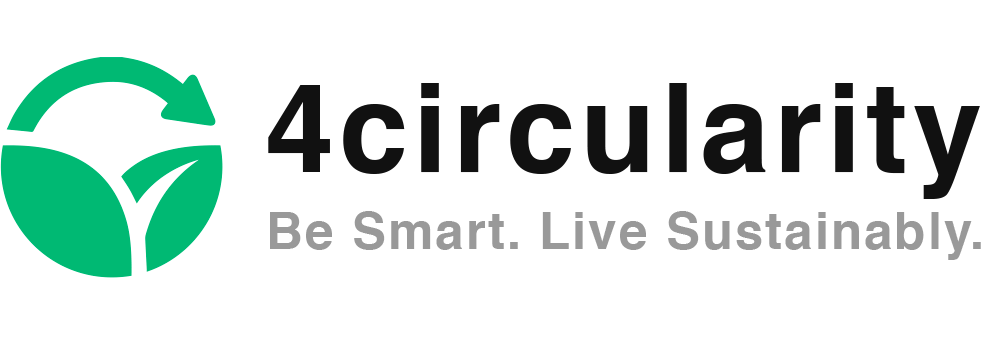“Cleaner, more just and more sustainable future” was the slogan of 2020. It was stated that we are the generation who will make the change to a safer, more just and more sustainable future. Antonio Guterres, Secretary General of the United Nations, hold an inspiring speech in Columbia University World Leaders Forum in the beginning of December. In his overview of the state of the planet he addressed the following themes that need to be in line for achieving the global carbon neutrality goal: commitment of governments, businesses and civil society, presence of social protection, health and basic income systems and increase in renewable energy investments. As we know, the health impact became last year the most important challenge to tackle while getting back on track in green and just energy transition.
In European Union, the Green New Deal focuses on making Europe’s emissions net zero by 2050 and transitioning to a fully Digital Europe. What does this mean for businesses? It has been estimated that clean energy transition will create 18 million jobs by 2030. Companies are supported in becoming leaders in producing clean technologies and products and thus creating new jobs. With the help of governments, the businesses can contribute in bringing innovation, transforming our production and consumption patterns and introducing healthier living conditions and to a new, sustainable level that respects the boundaries of our planet.
We cannot continue making business as usual

In 1970, economist Milton Friedman came up with the shareholder theory that argued that companies’ only responsibility is to create profit for its shareholders and it didn’t have any social responsibility to the people or society. This business model is called a profit-driven business model, the one that holds on shareholders’ interest only. Since 50 years this theory allowed world economy to grow and the standard of living to improve but in what consequences?
It comes without saying that running a profit-driven business is no longer an option. The planet has reached its strict boundaries which are radically bending from its joints. The GHG emissions, extreme weather conditions, terrestrial and under water biodiversity loss, and growing social and environmental inequalities are all results of the climate crisis. We, the growing population, are already living its negative impacts and that is why we must act now.
What if sustainability is looked at “what we can do” and not “what we cannot do” perspective? I start from there. Running a sustainable business is not about excluding possibilities or denying to work with more and more suppliers due to their unsustainable value chains. Sustainability in business is continuously looking for new ways to grow through smart actions, making good for people, being a good community citizen and not making any harm to the environment.
Ticking the boxes is not enough

Integrating sustainability into business strategy and communicating about it is slowly getting standardized but we are not there yet. Consequently, businesses may think that simple acts are just enough but the reality is often more complex than that. As stakeholders’ requirements are getting more and more around environment, social and economic sustainability, companies are searching quick wins to tick the boxes. This often leads to greenwashing and making empty promises.
Once the business sustainability plan is successfully published, its not the time to tick that box and place feet on the desk. But it is the time to create a measurable action plan; who is responsible, what are the concrete actions to achieve the goals and what is the timeframe?
Communication is the key for a systemic change. So many companies are already doing the right thing but they do not understand how impactful it is to communicate efficiently and consistently about the progress. The more companies communicate on sustainability the more other companies follow the trend. Read more about measuring sustainability performance here.
Are you looking for tools measure sustainability performance? SDG Monitor is the smartest tool to measure, manage and communicate sustainability performance.
Importance of sustainability in business

Companies and organizations who have built sustainability into the DNA have only one choice to succeed: make sure that everyone are engaged with the sustainability goals. Internal and external stakeholder engagement results in several benefits. Here is a glimpse of those business benefits:
1. It provides competitive advantage
Placing climate actions in business strategy, showing environment, social and governance impacts and communicating transparently about what you do, give you competitive edge against competitors. A sustainable company attracts new talents, new customers and new investors because they positively affect the society. In other words, companies who make a difference for customers, employees and other groups in society attract impact investors and increase the overall stakeholder engagement.
2. It increases the bottom line
Businesses who create sustainable growth will be eventually rewarded. Providing products and services that are sustainable throughout their life cycle and social aspects, attract clients who are increasingly aware of the responsible production and consumption patterns. The fact is that customers are more and more seeking sustainable products and services and companies who answer to this need are growing quicker than their unsustainable competitors.
3. It reduces costs
All businesses look for growth but what matters is how its achieved. Becoming more circular in design state of everything by applying circular economy principles or making investments for equipment and innovations that optimize product manufacturing process all save costs. One single aspect that increases costs are stranded assets, unnecessary loss and waste of materials that are composed in production phase. By reducing or completely eliminating these waste and infra trails, business increases savings.
4. It builds employer image and brand
The company consists of values, goals and practices that form the working culture. A sustainable business commits in zero tolerance of discrimination, bullying, illegal practices and inequalities linked to diversity (sex, age, status, nationality and disability) as well as making no harm to the environment. It builds your image as an employer and how stakeholders see your brand.
5. It is absolutely necessary
Speaking of planetary boundaries, the global pressure and what we already experience, there is only one option; to develop businesses into more sustainable direction. Companies must adapt and improve reactivity in the rapidly changing world.
What benefits a Sustainability Plan gives and a word of optimism

Sustainability plan is the sustainability guide for your business. It keeps inside the industry framework where you operate, your measurable and time-bound actions, targets and your environment, social and governance impacts. It gives the tone and purpose why your business exists and the narrative how sustainability is seen in your company. With a simple and measurable action plan you business can plan, act, track and communicate on your actions that make the world a safer, just and cleaner place.
I believe that businesses need optimism, as much as, us individuals. At the end of the day, businesses consist of people who have their reasons for making decisions at the workplace. For me, optimism is the time, effort and thought we put into the future, picturing it and living it in our minds. The better you can picture your future, the quicker you will get there. Think about your future right now. What will you feel, see and think? Now think about the actions that you can take every day in order to make your future a reality.
If you are still wandering why sustainability is important for business, write a letter for your children or your existing or future grandchildren. Picture them reading out the letter let’s say in 20-60 years from now. What would you tell them about the planet’s state in 2021? What would you tell them about your contribution in climate crisis mitigation, the sustainable actions you have taken and the decisions you were part of? What would you tell them about the things you did for their future?
Once you are done, keep the letter close on your home office desk so that you can at any moment of cynicism or despair take out the letter and read your promises and reasons again and again until they become your driving forces.
Be Smart. Be Safe. Live Sustainably.


Hello Tuuli-Anna, I really like this post, especially the idea of writing a letter to the future. Great idea. Also, I just spotted your SDG Monitor work, I’ll be in touch about that, that seems really relevant for my focus on https://wellthatsinteresting.tech